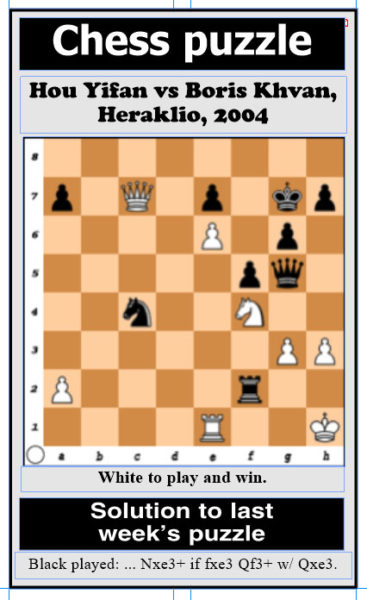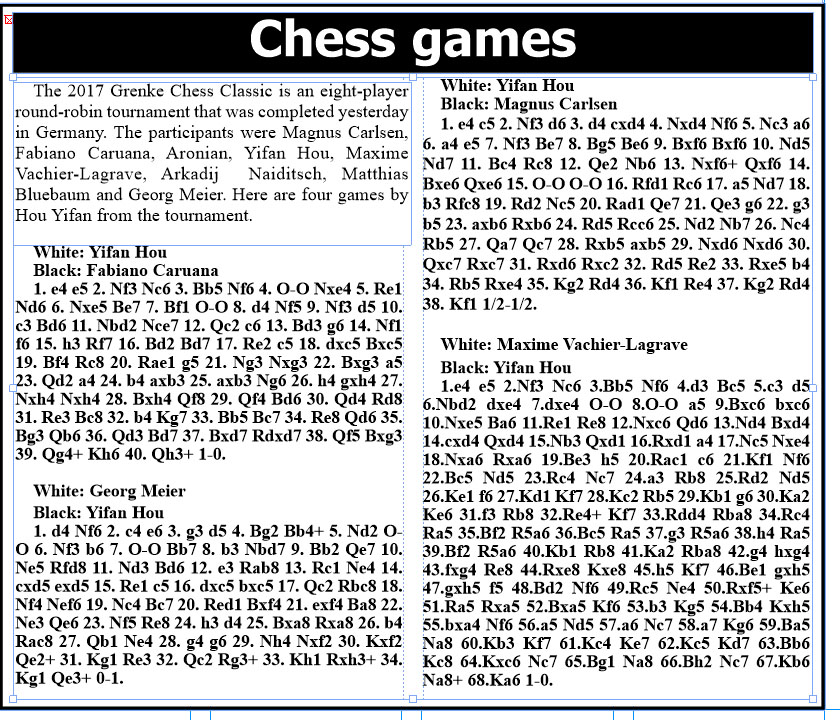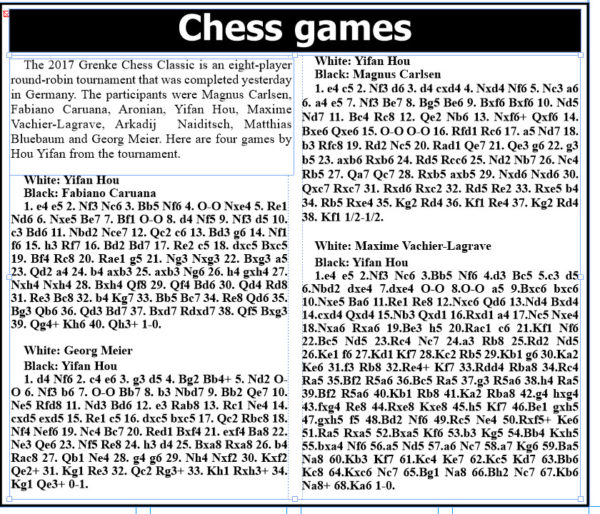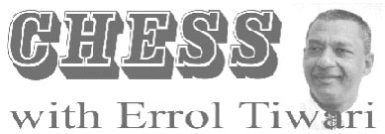 It is quiet on the chess home front, except in a few selected corners of Georgetown. The mall alongside Bourda Market, a closeted space on South Road which attorney James Bond is credited with making popular, a few homes in South Ruimveldt Park, and, at various times, on the avenue in Main Street, represent the destinations where the princely pastime is ongoing. But those limited numbers who present the face of chess in the city, are manifestly outnumbered by the reserved ones who prefer to play the game uninterrupted on the internet.
It is quiet on the chess home front, except in a few selected corners of Georgetown. The mall alongside Bourda Market, a closeted space on South Road which attorney James Bond is credited with making popular, a few homes in South Ruimveldt Park, and, at various times, on the avenue in Main Street, represent the destinations where the princely pastime is ongoing. But those limited numbers who present the face of chess in the city, are manifestly outnumbered by the reserved ones who prefer to play the game uninterrupted on the internet.
A colleague jokingly observed that the silent crew prefers to be without an audience when they are losing their lowly pawns, jumping knights, and at times, even their versatile queens, as they indulge in the serene pleasantry.
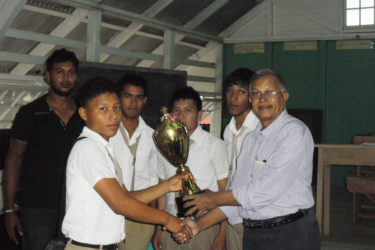
Disappointingly, chess does not belong to the gaming culture of Guyana, nor the Caribbean for that matter. We are only moderately plodding along in juxtaposition to the other 175 chess-playing nations. We prefer physical activities, the celebrated sports known to us by tradition. Jamaica is the only English-speaking Caribbean nation to have produced a chess grandmaster in Maurice Ashley, but he resided in the USA from his teens. However, Cuba has demonstrated that we can mix the enigmatic cerebral game with the extremist of physical sports and obtain wonderful results in both areas. Such is the case with the Eastern European nations also, for example Russia, Germany, Hungary, Ukraine and Poland, to name a handful. The conclusion is, therefore, we can mix chess with athletics, football, cricket, rugby and boxing. They complement each other. In Western societies, the climb to the mountaintop of chess is arduous. Very little funding comes from the state, unlike in the Eastern bloc nations.
However, all is not lost for the advancement of chess in Guyana. We have had instances of negotiating tangible chess encouragement throughout the years, but regrettably, in the column’s view, such generosity was not harnessed in a substantial, and the most positive manner. We knowingly failed to increase the numbers for chess, and that mistake ultimately registered most of our peripheral difficulties. Bond, the Guyana Chess Federation (GCF) president, happens to understand the problems of our past, and now has the opportunity to nullify them. The column has become aware, for example, that quiet moves are being made for the expansion of chess outside of Georgetown. The administration of chess is altogether more than the hosting of tournaments. People matter.
The GCF Berbice representative Krishnanand Raghunandan is earnestly preparing to create a Berbice Chess Association which would be affiliated to the GCF. The association would consist of various chess clubs within and around Berbice. With such a move, things appear to be taking shape to improve the activity of chess. Three outlets for elaborate chess participation come immediately to mind: New Amsterdam, Rose Hall and Corriverton. Raghunandan and former national junior and senior chess champion Kriskal Persaud reside in Rose Hall. And the London family, father and two sons, chess players all, can add an incentive to New Amsterdam. Corriverton also has active chess players. Forget the past. Certainly, the propitious smiles of chess heaven seem to be upon us.
In international chess, millions were following the Grenke super-tournament in Germany. As at Friday, World Chess Champion, Norway’s Magnus Carlsen, had won his first game of the tournament against Georg Meier. Woman Chinese grandmaster Hou Yifan had earlier taken the lead after she defeated the world’s number three chess player, Fabiano Caruana. She drew with Carlsen, but was stopped by France’s Maxime Vachier-Lagrave. The tournament concluded yesterday.